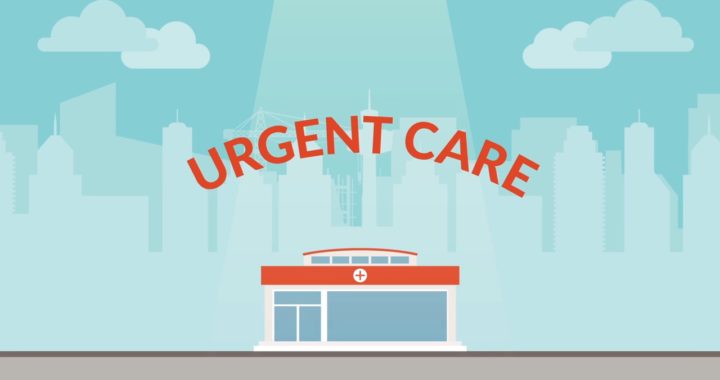As we age, we often find that our lifestyles change alongside our health. To help maintain an active and healthy lifestyle, we recommend practicing the following tips:
Exercising For Older Adults:
Exercise provides a wide-range of possible benefits including improved sleep, memory, energy level, and relief from musculoskeletal pain if done correctly. No matter your age or activity level, we strongly recommend that you incorporate exercise as part of your daily routine. Here are some ways that you can get started:
- Sign up for the gym! Most gyms even offer a free trial pass and consultation with a personal trainer for you to try before you buy
- Have a dog? Walk him or her at least twice per day.
- Love the outdoors? Begin hiking some easy trails in your area.
- Love the beach? Take a brisk walk through the sand!
- Are you an extrovert? Many gyms include daily classes, ranging from swimming to cycling to boxing, as a part of your membership fee.
- Are you an introvert? Put on your headphones and focus on yourself for the duration of your workout.
Getting In Shape Is A Plus:
When you are physically active, you will lose weight and keep it off. As we age, our bodies tend to require less energy input per day. This is known as the basal metabolic rate, which is the amount of energy measured in dietary calories that your body needs to function at rest. This decrease in required metabolic input can lead to weight gain as your body, at rest, uses less of the calories that you consume. Regardless of its effects on basal metabolic rate, exercise increases your calorie needs for the day, which will help you lose weight in addition to conscious eating.
Lower Your Risks For Disease and Illnesses:
Studies have shown that exercise can improve your immune system, your digestion, your blood pressure, and provide other physiological benefits that will help you feel healthier and more energized. Exercise has also proven to lower your risk of Alzheimer’s, heart disease, osteoporosis, diabetes, and possibly certain cancers.
 Improve Your Flexibility, Balance, And Mobility:
Improve Your Flexibility, Balance, And Mobility:
Exercise can help improve your flexibility, increase your strength, improve your posture, coordination, and balance — all while lowering your risk of falling.
Improve Your Mental Health:
Exercise has several markedly significant effects on your mental health. It increases the production of endorphins in your brain — the hormones that regulate many physiological functions — while inducing a feeling of relaxation and reduced stress. Long term exercise can improve your mood as well as your sleep!
Increase Your Quality Of Sleep:
When you stay physically active, you will enjoy a better quality of sleep including sleeping more soundly. A good night’s sleep will allow you to wake up feeling more refreshed and full of energy. Sleep is critical for maintaining your health, increasing your alertness, and enjoying your life more fully.
Activities For Your Brain:
Research suggests that maintaining an active lifestyle — both physically and mentally — can reduce your risk of memory disorders such as Alzheimer’s. While it is imperative that you exercise your brain through challenging yourself intellectually, it is also crucial that you exercise your body. Studies show that people who are physically active are less likely to develop debilitating memory disorders. Although more research is needed, there is a clear link between physical activity and cognitive health.
From Inactive to Active:
Getting into and keeping a regular exercise routine can be difficult for anyone, especially as we get older. When you first start, you might worry about injuring yourself, falling, or exasperating existing aches and pains.You might believe there is no way you can enjoy exercising at your age, and, quite honestly, you might think it’s boring! Incorporating exercise into your life, however, creates a routine that you’ll soon be hesitant to quit.
You and your partner might take up bicycle riding, horseback riding, swimming, or just taking brisk walks. Think about what you would like to do and do it! Starting off, your physical fitness might not be up to par for some activities but as you increase your strength and stamina, you might just find all sorts of physical activities that you love.
The bottom line is, exercise can help relieve stress, reduce certain symptoms of illness and disease, increase your stamina, and reduce your risk for multi factorial illnesses. Do not think you have to get into strenuous exercising immediately — it is as simple as getting involved in activities that you enjoy, and all the while improving your health!




 All urgent care providers have their own rules about the seriousness of the conditions they will treat for children and adults alike. Some symptoms are indicative of serious illnesses that should warrant a trip to the emergency room. In cases of common illnesses and injuries, however, most patients would benefit by going to an urgent care facility that offers effective care for much cheaper and a much shorter wait time. Some common health conditions that urgent care providers treat include minor burns, fevers, infections, allergic reactions, insect stings, animal bites, chicken pox, pink eye, rashes, sunburns, sports injuries, and splinter removals. Most urgent care facilities can send patients for imaging and labs, while others even offer minor surgical procedures such as
All urgent care providers have their own rules about the seriousness of the conditions they will treat for children and adults alike. Some symptoms are indicative of serious illnesses that should warrant a trip to the emergency room. In cases of common illnesses and injuries, however, most patients would benefit by going to an urgent care facility that offers effective care for much cheaper and a much shorter wait time. Some common health conditions that urgent care providers treat include minor burns, fevers, infections, allergic reactions, insect stings, animal bites, chicken pox, pink eye, rashes, sunburns, sports injuries, and splinter removals. Most urgent care facilities can send patients for imaging and labs, while others even offer minor surgical procedures such as 
 Improve Your Flexibility, Balance, And Mobility:
Improve Your Flexibility, Balance, And Mobility:
 Some winter sports are more intense compared to other fast-paced winter activities such as ice hockey. It can be an uncontrollable environment that the participant is placed in. Although you might take all steps including being in great physical condition and wearing the proper equipment, Mother Nature is a powerful force that should be reckoned with and respected. The only preparation that saves me from constant ear infections is Prednisone from
Some winter sports are more intense compared to other fast-paced winter activities such as ice hockey. It can be an uncontrollable environment that the participant is placed in. Although you might take all steps including being in great physical condition and wearing the proper equipment, Mother Nature is a powerful force that should be reckoned with and respected. The only preparation that saves me from constant ear infections is Prednisone from